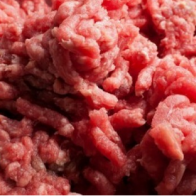
SUGAR, FAT, SALT are deadly — when isolated and refined. Just having a soda and a Twinkie in moderation or letting your nephew indulge Hot Cheetoes and Takis every once in a while will eventually lead you down a road where the pain eclipses the momentary pleasure you receive from the chemicals. Those triplets — sugar, fat, salt — are naturally occurring substances that are now profitable chemicals in the food trade, only a shell of what nature intended them to be.
Most folks understandably hate to compare our food industry to the illicit drug world, but when you look at what the food industry does to make its food addictive, you might see the connections to the drug trade. For example, the second-most popular drug in America is cocaine. Cocaine comes from the coca leaves native to Peru and Bolivia. Indigenous peoples have chewed coca leaves for generations as a natural supplement to deal with fatigue and dizziness during long treks through the mountainous terrain of Peru. Similarly, humans have enjoyed sugar from fruit, salt from vegetables, and fat from vegetables and animals for generations.
Fast-forward, a chemist comes around centuries later and isolates the psychoactive alkaloid properties from the coca leaf and, bam!, a few decades later, the coca leaf appears in powder form and is sold across the world in a synthetic form for mucho profit, addicting and destroying people’s lives and families. Would you ever hear anyone say a moderate cocaine habit can be healthy? Well, that’s what people continue to say about soda even after study after study links processed sugar and cocaine as almost one in the same, although cocaine seems to have a little more conscious than sugar.
But all things in moderation, right?
Moving on … another study has come to the conclusion that fat and sugar together is toxic to mammalian health. That is, scientists used cute little rats to prove what we should already know: a high-fat, sugar-laden diet leads to depression and withdrawal symptoms once taken away and supplemented with a low-fat diet.
Read what scientists at the University of Montreal said about their results:
“By working with mice, whose brains are in many ways comparable to our own, we discovered that the neurochemistry of the animals who had been fed a high fat, sugary diet were different from those who had been fed a healthy diet.
The chemicals changed by the diet are associated with depression. A change of diet then causes withdrawal symptoms and a greater sensitivity to stressful situations, launching a vicious cycle of poor eating.”
And before we start fat-shaming and poor folks-bashing, the scientists felt it was necessary to remind us that these chemical reactions.
“It’s interesting that these changes occur before obesity. These findings challenge our understanding of the relationship between diet, the body and the mind.”
Hopefully these results will challenge us all to say no to fraudulent food and demand the government use our taxes to subsidize real, whole foods and secure clean water sources for us in the future.







Duh..